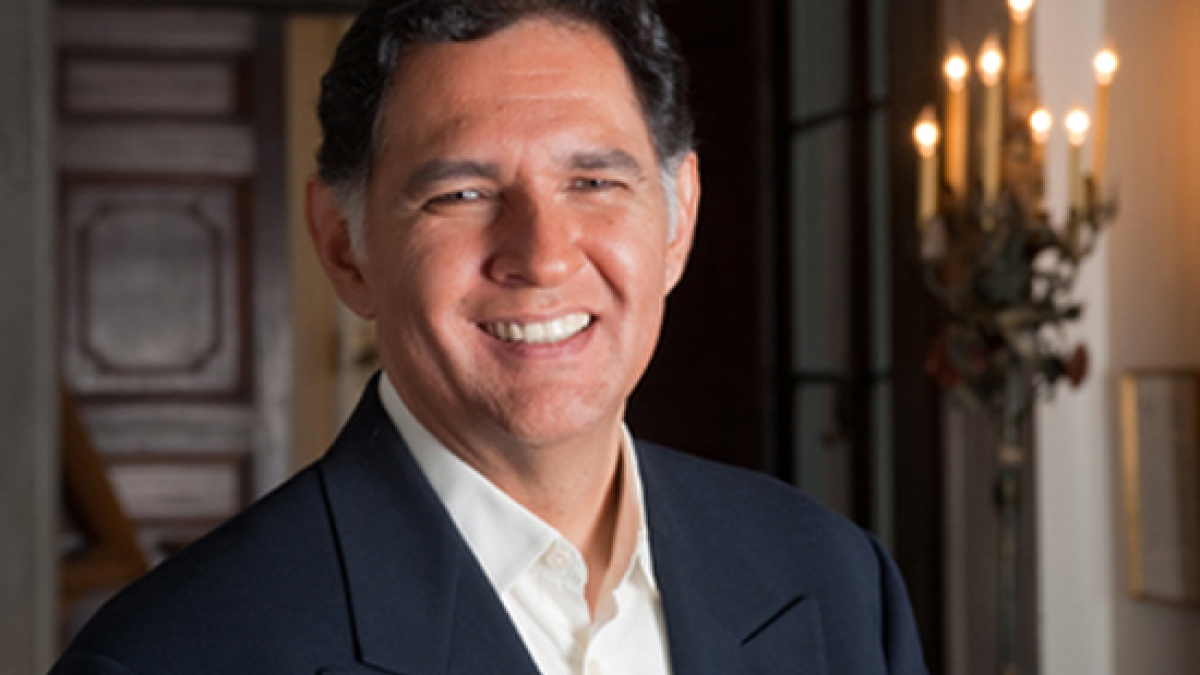ASU professor Eduardo Pagán named associate dean of community affairs

Professor Eduardo Pagán has been appointed associate dean for community affairs for the New College of Interdisciplinary Arts and Sciences at Arizona State University, starting July 1.
Pagán is the Bob Stump Endowed Professor of History in New College and former vice provost for academic excellence and diversity.
“Dr. Pagán’s experience working on issues at the university level will help us think deeply about the work ahead of us and will help us increase our success,” said Marlene Tromp, vice provost and dean.
“Our goals are to support our students through programs like our peer mentor program, to support cutting-edge faculty research, and to make ASU’s West campus nationally visible for our interdisciplinary programs and our faculty-led student research.”
New College is a core academic unit on ASU’s West campus and consists of three schools – Humanities, Arts and Cultural Studies; Social and Behavioral Sciences; and Mathematical and Natural Sciences. The college was established in 1984 to offer the benefits of a small-college experience and interdisciplinary approach in partnership with the advantages of a top-tier research university.
Pagán joined the faculty of the New College in 2004. He has served as co-chair of the ethnic studies program and chair of the Department of Language, Cultures and History, as well as president of the academic senate for the West campus.
He is an active member of the Barrett, The Honors College faculty and graduate faculty in the School of Historical, Philosophical and Religious Studies. He has taught courses ranging from the history of Native America, the Hispanic Southwest and constitutional U.S. history, to inquiry methods for contemporary issues.
Pagán has published book reviews, scholarly articles and several books, including “Murder at the Sleepy Lagoon: Zoot Suits, Race, and Riot in Wartime L.A.” He has three book projects in progress that examine Puerto Rican nationalism, Navajo participation in Arizona politics and racial violence in territorial Arizona, respectively. Pagán is also a co-host of the television series "History Detectives" on PBS.
In his new role, Pagán will build ASU’s relationships with West-side and Native communities, and nurture public investment in the college.
“Our community is a key part of our success as a college and our university,” Tromp said. “As ASU President Crow outlined in our charter, we need to leverage our place to serve the communities we inhabit. Connecting our students, our researchers and our programs with those in our community is a high priority for us.”
One program in the New College that illustrates its commitment to the community is the “Gila River Early Educator Attaining Teaching Excellence” or GRE²ATE program. The first class of participants will graduate this year, having earned their bachelor’s degree entirely onsite in the Gila River Community – in collaboration with ASU’s School of Social Transformation and Bryan Brayboy, Borderlands Professor of Indigenous Education and Justice and director of the Center for Indian Education. The program focuses on curriculum planning, child development, family involvement, and integrating culture and Native language into early childhood classrooms. Also built into the program are features to ensure participant success, including mentoring and test-taking and technology training. One of Pagán’s goals will be to build other successful partnerships like this one.
“His ability to communicate the work of our programs – to help people understand who we are and what we do – will be a genuine invitation to participation,” Tromp said.
For Pagán, access to education is a personal commitment. The first in his family to go to college, he earned his B.A. from ASU in U.S. history, M.A. from the University of Arizona in Latin American history, and M.A. and Ph.D. from Princeton University in U. S. history. Pagán says that he sees “education as transformative” and feels his own experiences can help him empower other non-traditional students.
“We need to be ever mindful to foster department cultures that nurture every student who walks through the door,” Pagán said. “We also need to continue to have a nimble response to the many complex situations that arise when communities find themselves in conflict. Having faculty mentors who understand the particular needs of our student communities is a very important part of the instruction we provide as faculty, and the retention of our increasingly diverse students.”
Prior to coming to ASU as a faculty member, Pagán was an assistant professor at Williams College and acting assistant dean of students at Princeton University. He also served four years with the National Endowment for the Humanities as a senior academic adviser and program officer in Washington, D.C.